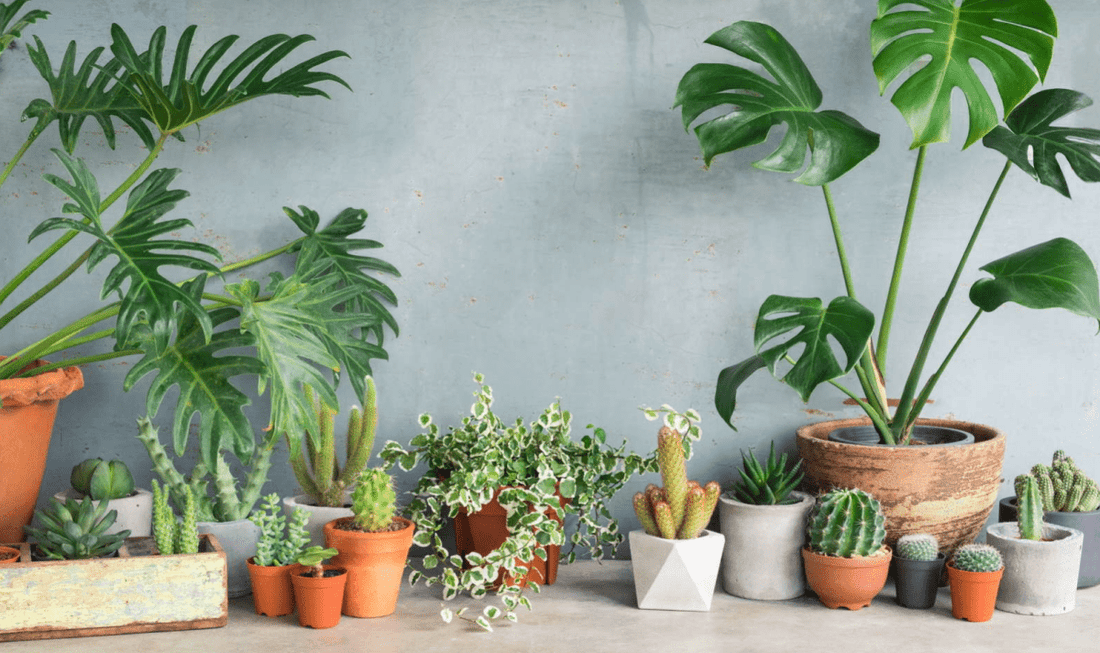Now that winter is approaching and the outdoor plants will soon have to be winterized, it is the ideal time for indoor plants that not only provide good air but also a good atmosphere.
A few beautiful plants scattered around the flat create a much better atmosphere practically in the blink of an eye - in the truest sense of the word. Because the green and flowering plants are not only good for the eye. Houseplants have found their way into our lives since more and more people are moving into cities, where immediate proximity to nature is not always guaranteed. Whereas a hundred years ago workers often had a small kitchen garden or allotment, and for certain occupational groups, such as coal miners, a small house with a garden was part of the job, the world of work and life has changed considerably in the meantime. Growing cities accommodate more people who cannot get out into the countryside during the week and often for longer. And those who can't get out into nature simply bring it home.

Why it pays to keep houseplants
Plants have numerous advantages, apart from the fact that they are simply beautiful. Just a few plants on the windowsill or on the balcony or a great large plant immediately make rooms much more homely. But green plants in particular do much more.
- They improve the indoor air and ensure sufficient humidity even when the air is heated.
- Even though houseplants improve indoor air, regular ventilation is the most effective way to keep indoor air fresh.
- Plants are natural sound absorbers.
- Green plants and flowering plants are stress killers - looking at them and caring for them "grounds" the owner just as much as gardening.
- A "green" ambience promotes the ability to concentrate.
Popular houseplants that do real good
What adorns the rooms at home depends a little on one's own preferences, of course, but also on the amount of light and sun. Species that love full sun do not thrive in a north-facing window - and vice versa. And if you have a good feeling for plants, you can also get demanding species to thrive. For plant lovers without the proverbial green thumb, on the other hand, those species are recommended that have few requirements and survive even if you forget to water them.
Many popular houseplants such as aloe, green lilies, philodendrons and smaller palm species originate from tropical forests where they thrive in shade or partial shade. This makes them so suitable for indoor growth. Fern and ivy also cope well with the low incidence of light and even love cool rooms such as corridors or locations in stairwells. And green plants also find a place in the kitchen: here in the form of popular kitchen herbs such as rosemary, thyme or basil.

Houseplants in the bedroom: really that bad?
Just like all large and small plant species, the green plants in your own four walls also convert carbon dioxide into oxygen via the leaf green or chlorophyll. Many plants in the home therefore provide air to breathe. Especially plants with large leaves are ideal for this. However, there is always talk that plants, conversely, take oxygen out of the air overnight. That is why - allegedly - they should not be placed in the bedroom.
In fact, photosynthesis is reversed at night, because the plants do not receive sunlight forCO2 decomposition and in fact take up oxygen. However, this only happens to a very small extent and in no way ensures creeping suffocation during sleep! Indoor plant experts, however, recommend hydroponics and undemanding, low-watered plants for bedrooms, such as aloe, the perennial hemp or orchids. This is because they pose fewer risks for mould in the potting soil.

Grow your own houseplants?
Once you have taken a liking to houseplants, you will soon realise that many species can be propagated easily. The undemanding green lily always produces new offshoots, some kitchen herbs, such as mint, can send new plantlets on their journey to neighbouring pots by means of extensions. But you can also grow your own plants from seeds, either in pots or even in a practical raised bed on the balcony.
Whether you try your hand at greens here or cultivate fruits and vegetables instead is up to your own interest. The popular avocado, for example, is a fast-growing Tree, which can easily be grown from a pit: simply provide the pit with three "stands" made of matchsticks and place it in a jar about 1 cm deep in water. Roots and seedling will soon form in a bright but not sunny location, when the first leaflets are visible, the core can be placed half in the ground.

However, an avocado quickly exceeds the limits of what is possible, the Tree becomes meters high within a short time and must then be "wilded out". With a little patience, you can harvest your own avocados after a few years (but it needs the right pollination) and thus do without the polluting avocados from the supermarket in the future. If you like it smaller, you can try to grow tomatoes or hot peppers in a pot or be content with slow-growing species.




















